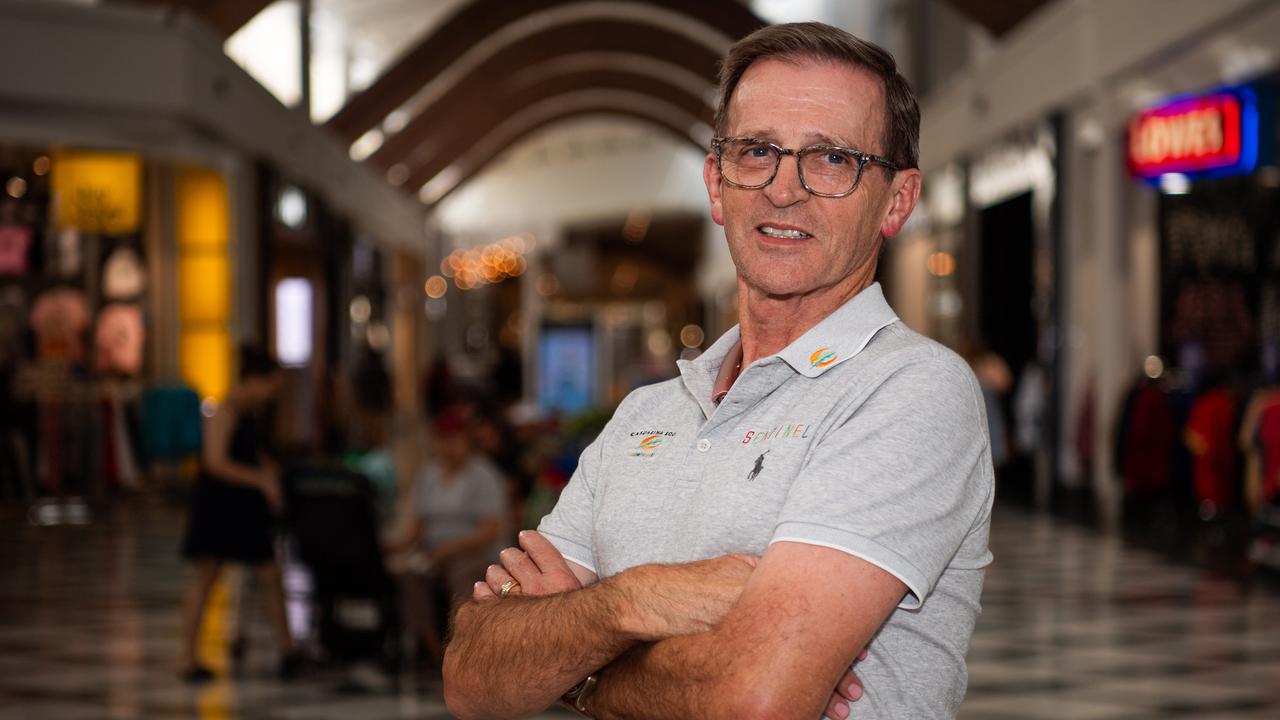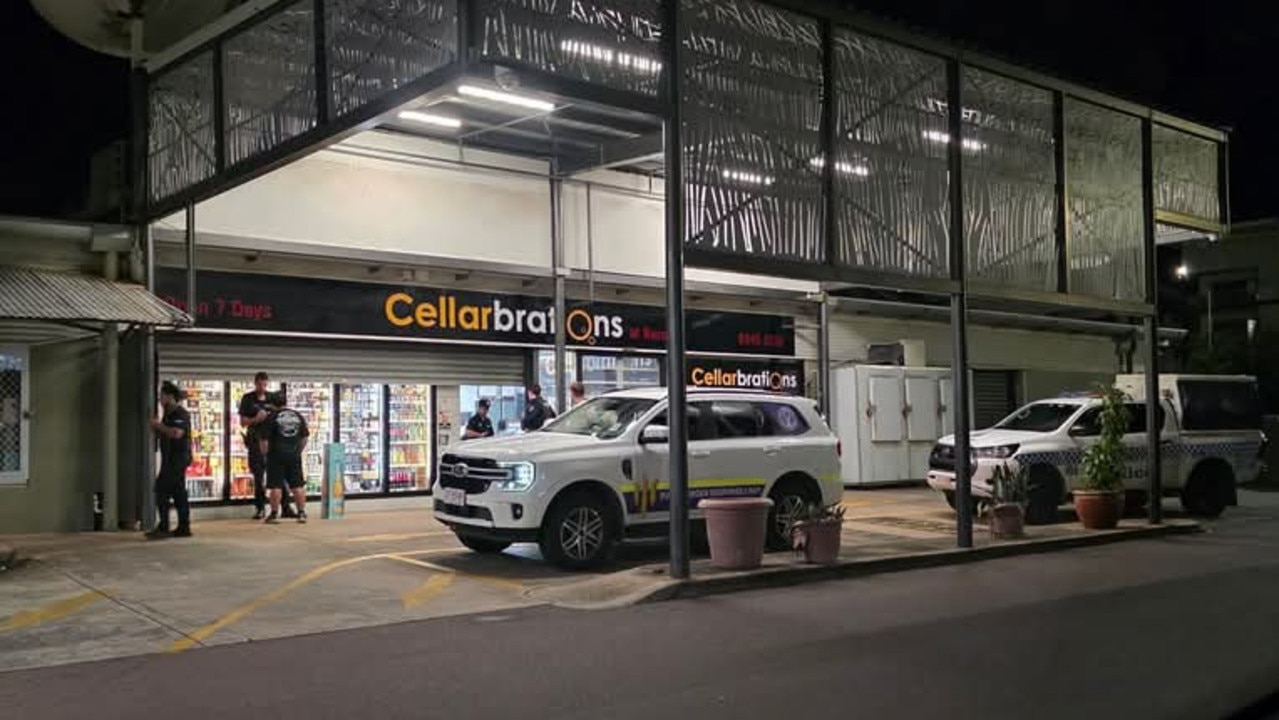NT Police Superintendent Jody Nobbs calls out ‘leadership deficit’ over racist Zach Rolfe texts
Video taken on the night of Kumanjayi Walker’s killing has been released as a top Northern Territory police officer says ‘leadership deficit’ allowed racism to be ‘walked past by many people’.

Police & Courts
Don't miss out on the headlines from Police & Courts. Followed categories will be added to My News.
The second most senior NT Police officer to take the stand at an inquest into a 2019 police shooting has called out the clear “leadership deficit” that allowed racism to be “walked past by many people”.
On Tuesday, Superintendent Jody Nobbs gave evidence in the Alice Springs Local Court at an inquest into the death of 19-year-old Kumanjayi Walker in Yuendumu in 2019.
Constable Zach Rolfe was acquitted on all charges relating to the shooting by a Supreme Court jury in March.
Superintendent Nobbs told Coroner Elisabeth Armitage the text messages, in which Constable Rolfe and other officers exchanged racist slurs, were, “by anyone’s measure”, “breaches of discipline”.
“But I’m more interested in the broader, how we’ve got to the state we’ve got to,” he said.
“I still maintain, as I said before, every police officer who joins this job is about genuinely caring about their community and wanting to make a difference, so at some stage that changes.
“I’m not quite sure how or why that occurs, clearly to me, there’s a leadership deficit somewhere.”
Superintendent Nobbs said “if you’ve got a box of apples and you put a bad apple in the box the whole box spoils and you’ve got a box of bad apples”.
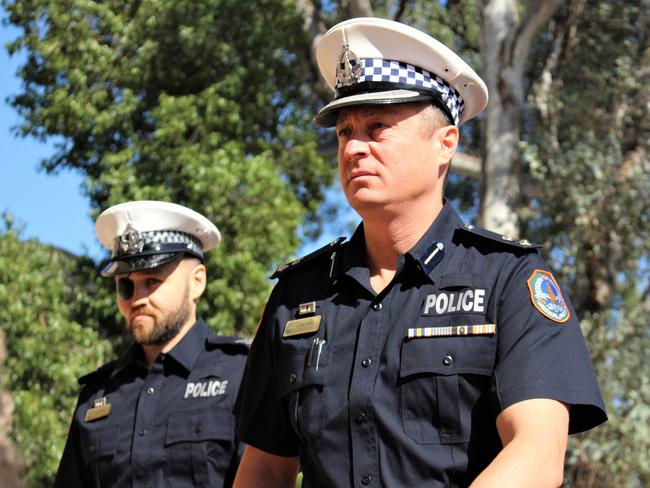
“I’m certainly not saying that’s the case here, but clearly the conduct has been walked past by many people,” he said.
“And it’s become a perpetuated situation and accepted as being part of how we do our business and I guess we’ve got to re-educate in terms of those things.”
But Superintendent Nobbs said despite the failings, he still believed the force was “going in the right direction”, with the highest percentage of Indigenous staff of any police force in Australia.
“It starts with leadership and it starts, I guess, with having the courage to hold people accountable and (saying) ‘Hey, that’s not the values we hold and correcting the behaviour swiftly and decisively,” he said.
Counsel assisting Peggy Dwyer noted Superintendent Nobbs and other police witnesses had testified that they would not have tolerated the racist language but the officer said there was a risk that “we are all tarred with the same brush”.
“The broad community perspective is, if you’ve got a cross section of the community that has those views, that the whole police service has those views,” he said.
“I’m a proud police officer, who proudly puts my uniform on each day, I’m blessed by doing the job that I do, but it just doesn’t make me feel very good that the community’s perception of me as part of a broader cohort is that I’m potentially racist on that basis.
“We have a tough job as it is and the job needs to have the confidence of the community, if we don’t have the confidence of the community, we might as well give up and do something else.”
Superintendent Nobbs was due to resume his evidence on Wednesday morning, but the hearing was paused until 1pm after NT Police barrister, Ian Freckelton KC, applied for an adjournment “while we take instructions from various of our clients in relation to the ramifications of what occurred yesterday”.
“We do that with great regret, your honour, because we are conscious of the time pressures and the need for efficiency in this inquest, but as a matter of fundamental fairness we have no option,” he said.
North Australian Aboriginal Justice Agency lawyer, Phillip Boulten SC, said he did not “think it’ll do any damage to the police or any police officer” if he proceeded with his cross examination of Superintendent Nobbs.
But Dr Freckelton said that would result in a “major problem” as to whether his clients would have the benefit of “assertive representation” if the adjournment was not granted.
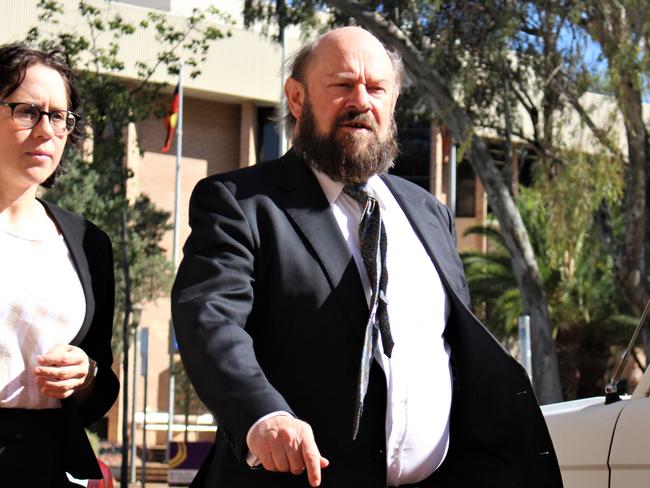
“It’s one of the most difficult balances, your honour, and what we say to you, assertively, is that those affected by what was said yesterday, how it was said yesterday, and what foreseeably may be said today, are entitled to assertive representation in respect of taking objections and so on,” he said.
“We would be deeply troubled if any of the members of the NT Police force were not adequately and assertively represented throughout these proceedings when matters touch upon various members in very potent ways, given the language that has been employed.”
Counsel for Constable Rolfe and the NT Police Association, David Edwardson KC, and Sally Ozolins, supported the application.
“While I’m not privy to precisely what Dr Freckelton is conveying to the court, reading between the lines, it’s pretty obvious,” Mr Edwardson said.
“I would be loath for any further examination to occur until that issue is resolved, and so far as he’s made his application for this witness to be stood down now, I’d support that.”
Earlier on Tuesday, a visibly moved Superintendent Nobbs relived the “many, many sleepless nights” spent agonising over what went wrong when Kumanjayi Walker was killed during what should have been a routine arrest.
The high ranking officer was noticeably affected as he watched for the first time Constable Rolfe’s body-worn camera footage from the night of the shooting, as the IRT conducted unnecessary “intelligence gathering” in deviation from his arrest plan.
“Can I just stop that for one second,” Coroner Elisabeth Armitage said.
“I’m noticing a reaction from you Superintendent.
“What are you – what is your reaction?”
Superintendent Nobbs replied: “Your honour, it’s a difficult one for me.”
“This event has, or has had, a deep impact on everyone involved, but it certainly has on me as well,” he said.
“One of the critical aspects of any tactical matter, or any critical incident, is a post operation debrief, I was never afforded that opportunity, in regards to this.
“So a lot of the things I’m learning over the last few days, have been, sort of, a bit informative to me, because, you know, I spent probably six months not sleeping, going: ‘How can something so simple in my mind have become what it ultimately became?’.”
Superintendent Nobbs said his intention in dispatching the IRT that day was “to do a certain thing, within a narrow set of parameters”.
“And then all I know is that we have the death of a community member,” he said.
“I then spend many, many sleepless nights, trying to reconcile in my mind how we got to where we got to, with not having an appreciation of how we got there.
“So, yeah, I guess these are – it’s just informative in terms of some of the things that I could see that was outside of the scope of what I considered to be what we were required to do.”
Superintendent Nobbs said the plan to arrest Mr Walker at 5am the next day, as he understood it, and as he expected the “organised, disciplined” IRT members to understand it, was simple:
“We can knock on the door, we cordon, we have a conversation with the residents, we clear the location, if necessary, and if he’s not there, then we go to the next location,” he said.
“In my mind there’s no need or necessity for intelligence gathering (before then).”
Counsel assisting Peggy Dwyer pointed out a part of the video in which Constable Rolfe tells residents “We’re here to grab (Kumanjayi) up” before entering a house to check if he is inside.
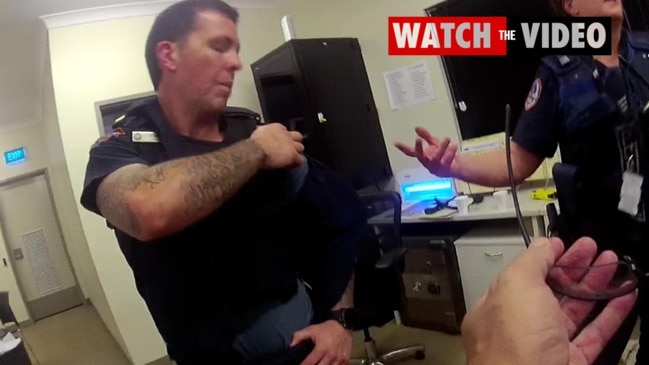
“That’s not consistent with going there at 5am is it, for any plan?” she asked.
“And that’s not consistent with intelligence gathering, is it?
“And that’s not consistent with what you’d expect from a disciplined force that is following a plan?”
“No,” Superintendent Nobbs replied.
He said “going into the house like that, when there are two children sitting there watching television” was “counter-productive to what was ultimately (sought) to achieve”.
“If I accept the genuine notion that this was a genuine intelligence gathering exercise in support of a 5am operation, if we gleaned at whatever time that was that Kumanjayi is at X location, then that would still only be as good as the information as it was at that point in time,” he said.
“It still would’ve had no immediate bearing or certainty around the next morning activity, so again, the next morning activity was the priority for me and that was my expectation.”
But Dr Dwyer suggested it was “not intelligence gathering” and that the officers had gone “straight to the first house that they knew of … with a view to arresting Kumanjayi at that time”.
“It’d appear the case based on what you’ve just shown me, yes,” Superintendent Nobbs replied.
He said a conversation in which the heavily armed police tell a local woman they are carrying long arms because “someone probably shouldn’t run at police with an axe” was “extremely disappointing” and “provocative in nature”.
“And it has the potential, doesn’t it, to not only destroy this plan, but also to affect the trust that community members have in police, going forward, which is important for subsequent activities?” Dr Dwyer asked.
“Yes, I agree,” he said.
Ms Armitage, noting that the officers’ actions deviated so far from the plans “stated by a number of different people”, quoted Constable Rolfe’s own words gleaned from a text message read out at the inquest earlier this month.
“Would you agree that it appears to be people doing ‘cowboy stuff with no rules’?” she asked.
“I accept that descriptor,” Superintendent Nobbs replied.




